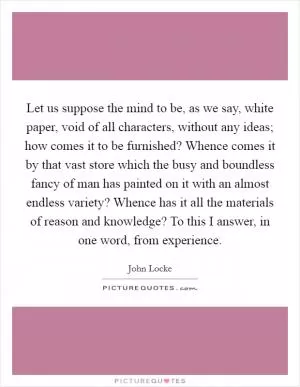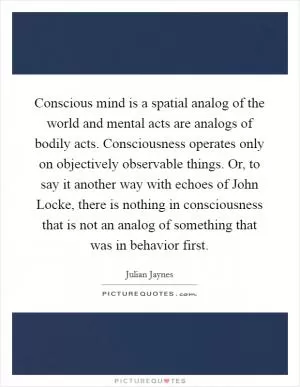Action [is] the great business of mankind, and the whole matter about which all laws are conversant
![Action [is] the great business of mankind, and the whole matter about which all laws are conversant Picture Quote #1 Action [is] the great business of mankind, and the whole matter about which all laws are conversant Picture Quote #1](https://img.picturequotes.com/2/71/70427/action-is-the-great-business-of-mankind-and-the-whole-matter-about-which-all-laws-are-conversant-quote-1.jpg)
Action [is] the great business of mankind, and the whole matter about which all laws are conversant
John Locke, a prominent English philosopher of the 17th century, is known for his contributions to the fields of political theory and epistemology. One of his most famous quotes, "Action [is] the great business of mankind, and the whole matter about which all laws are conversant," reflects his belief in the importance of human agency and the role of laws in regulating human behavior.Locke's philosophy is rooted in the idea that individuals have natural rights to life, liberty, and property. He believed that these rights are inherent to all human beings and that governments are created to protect and preserve these rights. In his seminal work, "Two Treatises of Government," Locke argues that individuals have the right to rebel against a government that fails to uphold these rights.
For Locke, action is the essence of human existence. It is through our actions that we exercise our agency and shape our destinies. Laws, in Locke's view, are necessary to regulate human behavior and ensure that individuals can coexist peacefully and harmoniously. Laws are meant to protect the rights of individuals and prevent harm to others.
In the context of Locke's philosophy, the quote "Action [is] the great business of mankind, and the whole matter about which all laws are conversant" can be interpreted as emphasizing the centrality of human action in the functioning of society. Laws are created to govern human actions and ensure that individuals can live together in a just and orderly manner.
Furthermore, Locke's emphasis on action highlights the importance of individual responsibility and accountability. In a society governed by laws, individuals are expected to act in accordance with the principles of justice and morality. By recognizing the significance of action, Locke underscores the idea that individuals have the power to shape their own destinies and contribute to the common good.












 Friendship Quotes
Friendship Quotes Love Quotes
Love Quotes Life Quotes
Life Quotes Funny Quotes
Funny Quotes Motivational Quotes
Motivational Quotes Inspirational Quotes
Inspirational Quotes